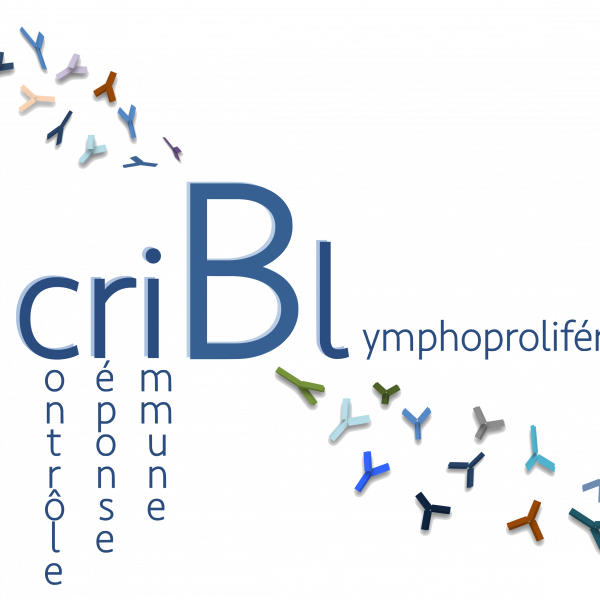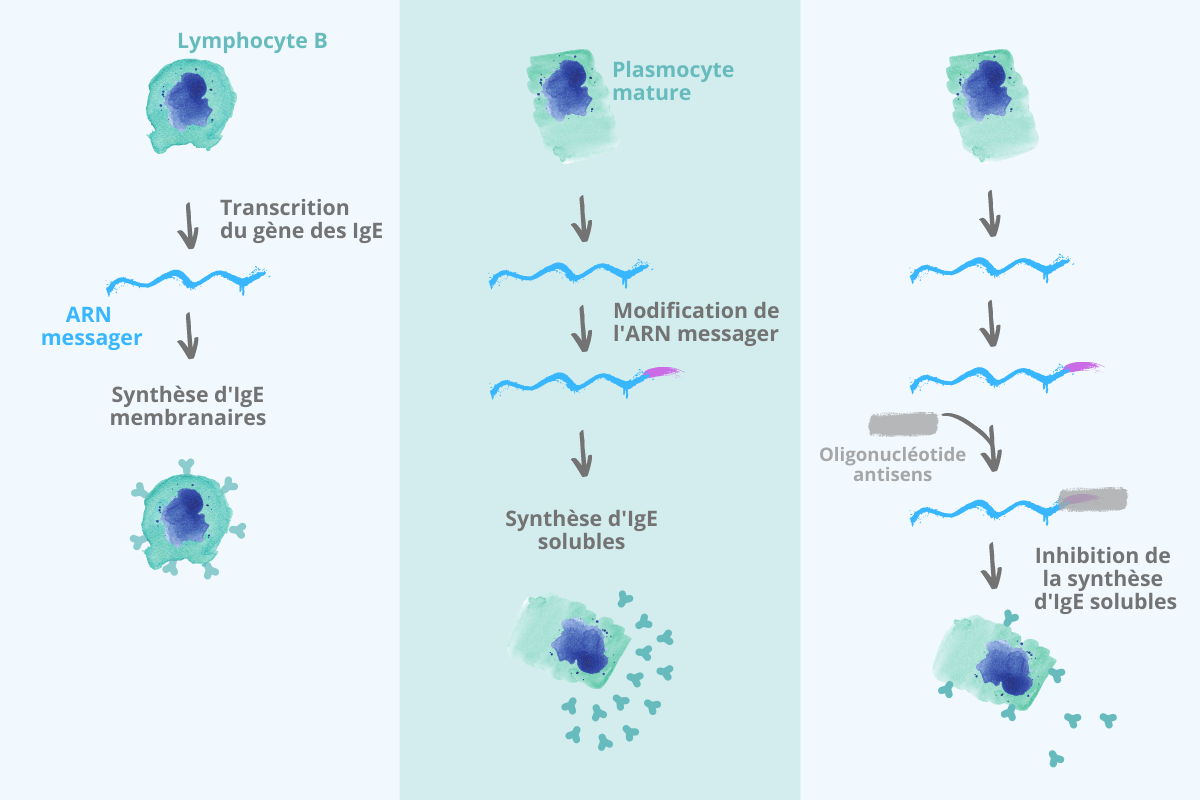
Allergies: spotlight on an RNA treatment
Some allergies – respiratory, food or drugs are caused by the release into the bloodstream of specific antibodies, immunoglobulinE (IgE). In Limoges, a team of researchers succeeded in blocking this phenomenon in cell and animal study models, using a synthetic RNA fragment. These promising results thus point to the possibility of a new treatment for allergies and other diseases dependent on the secretion of immunoglobulins.
Soluble or membrane IgE? B lymphocytes, precursors of plasma cells, produce membrane IgE. In mature plasma cells, the messenger RNAs which encode IgE are modified to lead to the synthesis of soluble immunoglobulins, released outside the cells. The approach developed by Laurent Delpy’s team consists of using a small synthetic oligonucleotide to mask this modification of messenger RNA and inhibit the synthesis of soluble IgE. © Inserm
Full text link on Inserm Website.
Source : A Marchalot et coll. Targeting IgE polyadenylation signal with antisense oligonucleotides decreases IgE secretion and plasma cell viability. J Allergy Clin Immunol, édition en ligne du 2 novembre 2021. DOI : 10.1016/j.jaci.2021.09.039


